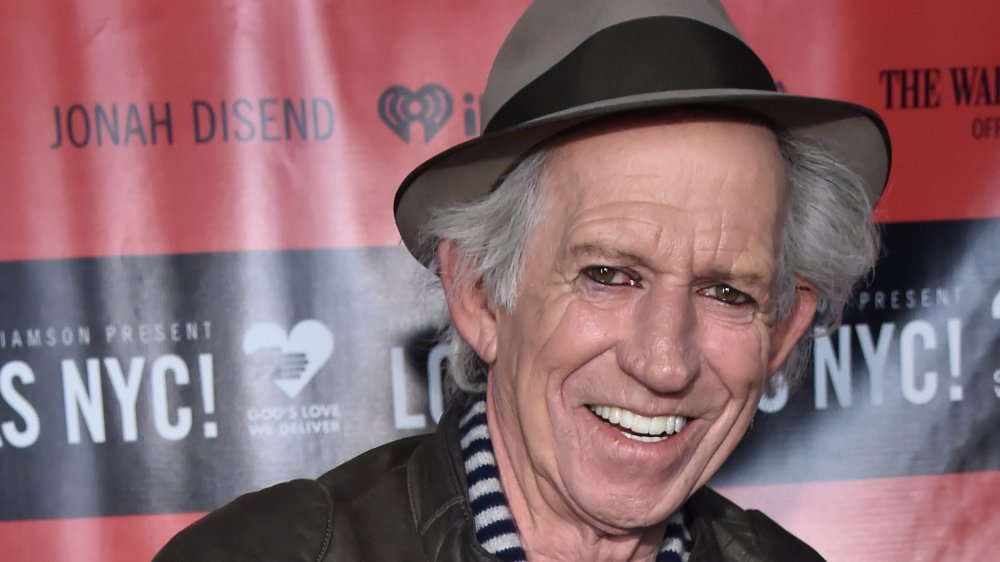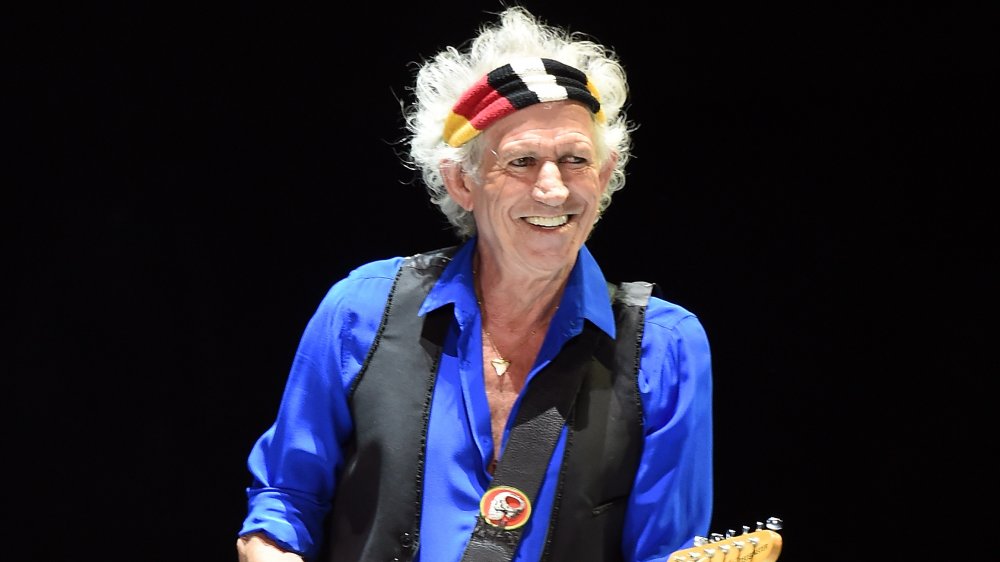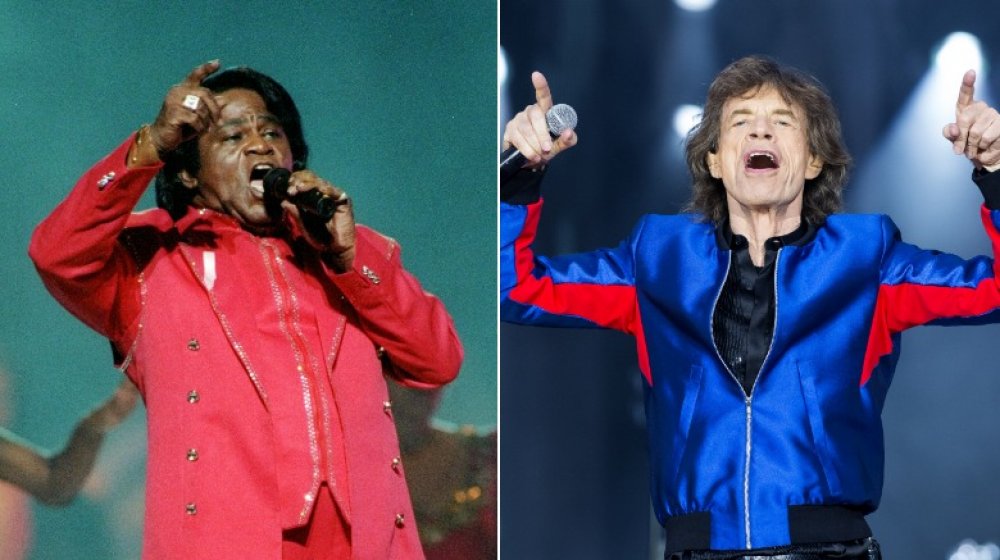Keith Richards Has Something To Say About Black Lives Matter
Keith Richards, guitarist for the Rolling Stones, spoke candidly about 2020 and how the year has been intense and unpredictable. In an interview with Rolling Stone published on Oct. 26, 2020, Richards opened up about his own struggles with quarantine regulations due to the coronavirus pandemic. When asked how he was "challenging" himself musically during this time, Richards resisted any such idea. "I gave up challenging myself. I mean, let's face it. This is a funny year, man. They haven't made one like it before. So this is all improvisation and just figuring out," the guitarist said.
Despite constantly adapting during an unpredictable year, Richards is still slated to release a project in November 2020, according to iHeart Radio. The release is a reissue of Live at the Hollywood Palladium, December 15, 1988, when he recorded a concert during a solo tour with the X-Pensive Winos. While the star has bright things on the horizon, he wasn't finished talking about major events that marked 2020 and, when asked what he thought about protests and the Black Lives Matter movement, Richard had something to say.
Keith Richards praised the Black Lives Matter movement
Keith Richards of the Rolling Stones was asked his thoughts on the protests that gained momentum around the world during 2020 and on the Black Lives Matter movement. In an interview with Rolling Stone, the guitarist said simply, "It's about bloody time."
"I mean, in this country [the U.S.], things are coming to a head," Richards added. "That's the way it is. You got to deal with it. It's difficult for me to talk about it, because I am not an American. I live here, I am in heart and soul, I am one of you, but I can't interfere," he explained.
Richards, according to Ultimate Classic Rock, has in fact been quarantining in the United States, so he has a closer perspective of what's going on than, say, bandmate Mick Jagger, who has been quarantining in England. So, with Richards' proximity to American events, it's no wonder the guitarist felt inclined to comment (even if he's not an American citizen). But Richards wasn't done talking about the Black community throughout America, both past and present, and the particular debt he owes to Black influence on the entertainment industry.
Keith Richards said he wouldn't be here without Black musicians
Keith Richards gave his full support to the Black Lives Matter movement in an interview with Rolling Stone. But Richards also spoke about Black influence on music, when it was noted that he had "always been a huge champion" for Black musicians and artists. Richards responded: "They're the reason I'm here." Richards has noted this influence on his music before. In a 2009 interview with The Guardian, the guitarist explained how the blues helped take the Rolling Stones to a different level of music.
As PBS noted, the genre of music known as the blues hails from a Black heritage. "[The blues'] roots were in various forms of African American slave songs," the outlet explained.
Richards told The Guardian: "I had a natural affinity for [the blues], I think, so it wasn't like a conscious thing or anything like that. You know, I didn't think in terms of black or white then. You didn't know whether Chuck Berry was black or white — it was not a concern. It was just what came in the ears and, my, what it did to you."
In fact, PBS noted that by the late 1950s, listeners had lost some enthusiasm for the blues and it wasn't until the 1960s, when the Rolling Stones performed covers of Muddy Waters and Howlin' Wolf, that people returned to the remarkable genre. But Richards added that another major artist (and close friend) was also indebted to Black musicians. Here's who.
Keith Richards' bandmate Mick Jagger learned from James Brown
Keith Richards told Rolling Stone that he and the rest of his band, the Rolling Stones, wouldn't exist without Black musicians and artists. Richards also told the outlet that frontman Mick Jagger was struggling with performing early on in his career: "Mick is the frontman, and he's got to stand on a tiny little stage, and he wants to move."
According to Richards, it wasn't until Jagger and Richards went to see James Brown perform that they understood how to hold the stage. "James for us, especially for Mick, was a real attraction," Richards told Rolling Stone. "To hear James Brown and to see how he dealt with that was great, because James didn't use a lot of the stage; he used a little small spot, and Mick learnt that he was an expert at it... Mick and James Brown automatically seemed to be made out of the same mold really," Richards explained.
In fact, Richards first became friends with Jagger in 1961, according to iHeart Radio, after he saw the latter carrying Muddy Water, Chuck Berry, and Little Walter LPs. So it's pretty clear the Rolling Stones would not exist without Black musicians whatsoever.




